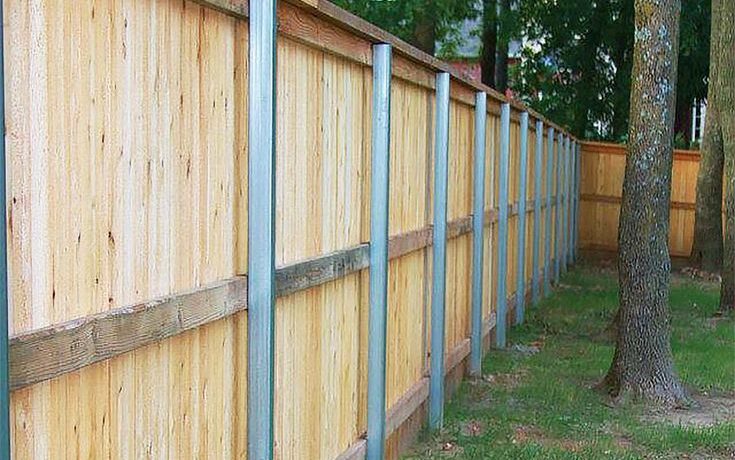Featured

When planning to set up a fence around your residential or commercial property, one of the very first actions is understanding the permitting requirements in your area. Here's what you need to understand regarding acquiring the essential authorizations for your fence installment.
Why Do You Need a License for a Fence? A permit is usually needed for fence installations to make sure compliance with local building regulations, zoning laws, and safety policies. Allowing assists neighborhood authorities keep uniformity in area visual appeals, security, and environmental considerations. It likewise ensures that the fencing does not conflict with energy lines or public areas, and that it sticks to elevation and boundary restrictions.

Usual Licenses Required for Fence Installment. Building Authorization. A lot of areas need a structure permit for fencing installment, specifically if the fencing surpasses a certain elevation (commonly over 6 feet) or is made from non-standard products. This license makes certain that your fence abides by regional building codes. In some areas, the structure division will check the site to make certain that the fencing satisfies safety and security and structural criteria.
Zoning Authorization. Zoning authorizations are designed to make certain that your fencing complies with regional zoning legislations, including problems from residential or commercial property lines, easements, and rights-of-way. Zoning laws differ from city to city, and sometimes, your fencing might need to be held up a certain number of feet from the sidewalk or road. If your fencing is in a historic district or other specially marked locations., a zoning authorization might likewise be required.

Fence License. In some locations, a details "fencing license" may be needed. Some cities limit chain-link fences in front lawns or have certain policies for privacy fencings.
HOA Approval. You might require authorization prior to installing a fencing if your home is component of a property owners organization (HOA) HOA standards usually include details regulations regarding the type, height, color, and products for fences to maintain the community's visual appeals. HOA guidelines can be stricter than city codes, so always check their standards before relocating forward.
Easement or Utility Licenses. If your fencing will be near or across an easement (such as an utility easement), you might need to acquire authorization from the utility business or other entities that control the land. This is specifically crucial if you plan to mine fencing articles, as it guarantees you will not damage below ground energies like power, gas, or water lines.
Just How to Discover What Allows Are Called for. The very best way to establish which permits are essential for your fencing installation is to call your neighborhood building department or local workplace. They can supply you with certain info about demands in your location. Here are a few actions you can take to figure out:
Inspect the City or Area Site: Several regional governments supply info concerning fence setup allows online. Seek building or zoning areas on their website. Call or Go To Local Government Offices: If the information is not conveniently available online, calling or checking out the local workplace in person can clarify what's needed. Consult a Specialist Professional: If you're unclear or overwhelmed by the procedure, a neighborhood service provider or fence installment company can assist in browsing the permitting process, as they're acquainted with local guidelines. What Happens If You Do Not Get an Authorization? Falling short to obtain the necessary authorizations can lead to a variety of repercussions. In several areas, you could face fines, and your fencing may be gotten to be removed. Furthermore, if you sell your home in the future, the lack of proper permits could be a warning for purchasers and affect the sale. Allowing makes sure that your fence is compliant and aids stay clear of future problems.
Final thought. Before mounting a fence around your residential or commercial property, it's crucial to examine whether an authorization is required in your area. Structure authorizations, zoning permits, HOA approval, and energy permissions may all play a role in your fencing installation process. Making the effort to study and acquire the needed permits will not only guarantee that you're following regional regulations, however also aid safeguard your investment and preserve the stability of your residential property.
Latest Posts
The History of Dodge: A Legacy of American Automotive Excellence
Published Dec 25, 24
3 min read
Trusted GMC Services Near Morris, IL
Published Dec 25, 24
1 min read
What to Learn About Transmission Fixes and Maintenance
Published Dec 25, 24
0 min read